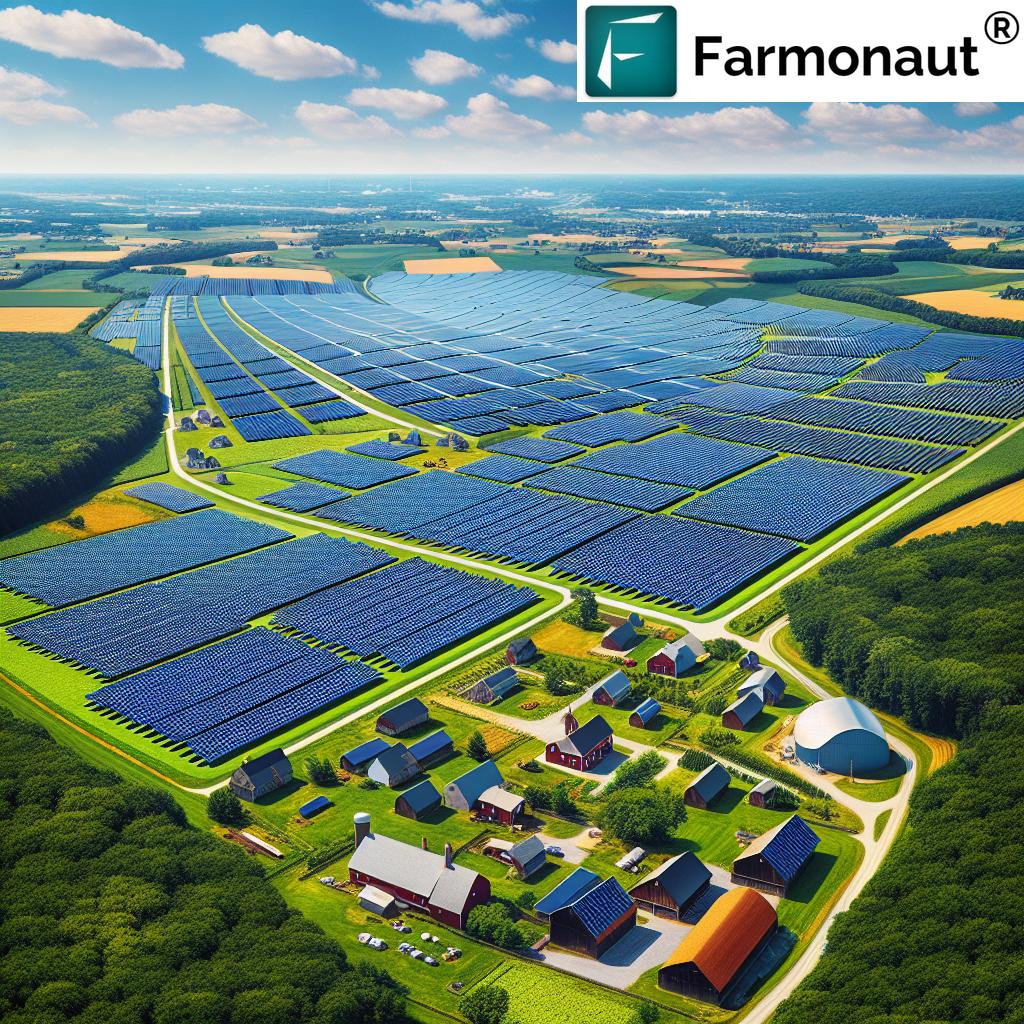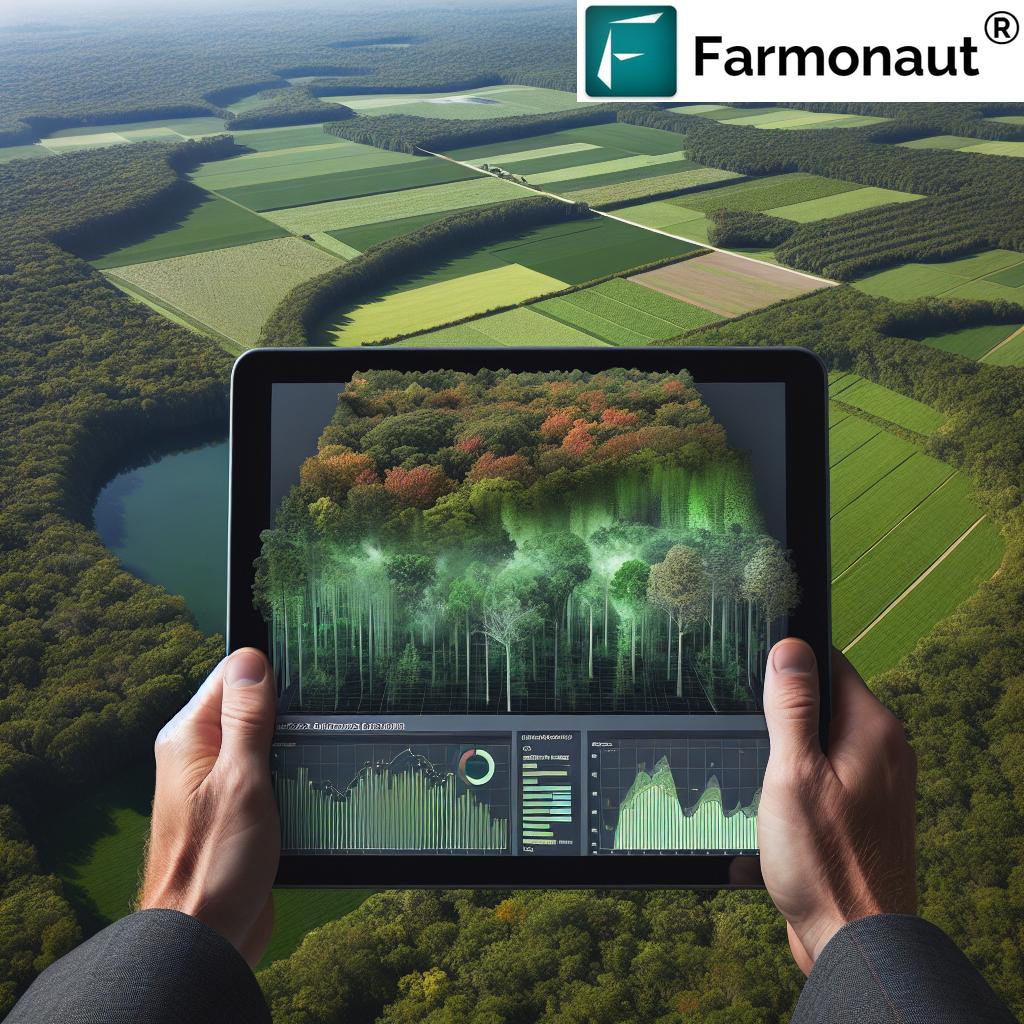Agricultural Land Management Carteret, Trenton, Union NJ: Strategies, Challenges & Innovations for 2025
Agricultural Land Management in Carteret, Trenton, Union NJ: A 2025 Sustainability Outlook
Agriculture remains a vital component of New Jersey’s economic and environmental landscape—particularly in Carteret, Trenton, and Union. As we move through 2025, effective agricultural land management in these regions has become increasingly important to meet the demands of sustainable farming, urban development pressures, and climate change adaptation.
This comprehensive article explores the current practices, unique challenges, soil health initiatives, water efficiency advancements, and innovations that are shaping agricultural land management across these New Jersey locales.
Did you know? Enhanced traceability solutions are transforming New Jersey’s agricultural sector, helping farmers build trust through transparent and secure supply chains powered by blockchain technology.
Understanding Agricultural Land Management: Core Principles & Key Components
Agricultural land management refers to the robust set of strategies and practices used to maintain and enhance productivity while safeguarding environmental health. In New Jersey—especially in areas like Carteret, Trenton, and Union—agricultural land is often found at the borders of urban and industrial zones, creating unique challenges and requiring a nuanced approach to balancing production, conservation, and community needs.
The most critical components of agricultural land management in 2025 include:
- Soil Conservation: Protecting and improving soil health through reduced tillage, organic amendments, and cover cropping.
- Water Resource Management: Employing modern irrigation, efficient drainage, and preservation of wetlands to optimize water use and mitigate pollution.
- Crop Rotation & Integrated Pest Management: Using rotation to prevent pest build-up and IPM to reduce reliance on chemical pesticides.
- Land-Use Planning: Employing zoning, conservation easements, and land rehabilitation in rapidly developing regions.
- Sustainable Practices and Innovations: Adopting precision agriculture technologies, renewable energy, and transparent food security initiatives.
With pressures from both rapid urban development and changing climate conditions, New Jersey’s agricultural land management has evolved to encompass sustainability, community engagement, and the judicious use of innovative technologies.
Agricultural Land Management Carteret NJ: Navigating Industrial & Urban Boundaries in 2025
Carteret, NJ, known for its bustling industrial zones and port facilities, presents a unique landscape for agricultural land management. Although the city is predominantly urban, pockets of farming activity persist and are even experiencing a resurgence due to growing interest in urban agriculture initiatives.
- Integration of Small-Scale Farms: Community gardens and urban farms are appearing within industrial and residential landscapes, utilizing raised beds and container farming to make maximum use of limited and sometimes contaminated land.
- Soil Testing & Raised Beds: Soil quality is rigorously tested by local authorities. Raised bed systems mitigate contamination risks from nearby industrial activities and enhance crop security.
- Water Management Optimization: New irrigation and drainage systems have been installed to handle industrial runoff, preventing pollution of agricultural plots, and are often paired with rainwater harvesting techniques to boost efficiency.
- Rehabilitating Vacant & Underutilized Lots: Sustainable practices such as composting and hydroponics are being leveraged on previously abandoned or underutilized lots, reducing land use pressure and improving local food security.
- Policy & Community Engagement: Local authorities and urban planners encourage active citizen participation in land-use planning, balancing food production with industrial development pressures.
In 2025, the management of agricultural land in Carteret focuses on integrating more greenery and food production into urban and industrial settings. These efforts also align closely with the state’s push to reduce carbon footprint by advancing local food production and efficient resource management.
Want to measure and manage your farm’s environmental impact in Carteret or other urban-impacted areas? Explore Farmonaut’s Carbon Footprinting platform for actionable, satellite-driven insights.
Agricultural Land Management Trenton NJ: Farmland Preservation in the Urban Core (2025)
Trenton, NJ—as the state capital—faces constant pressures from urban expansion, making farmland conservation a top priority for 2025 and beyond.
Local and state programs, including those led by the New Jersey Agricultural Development Committee (NJADC), have catalyzed a movement toward sustainable land management and innovative farming techniques.
- Zoning Laws & Conservation Easements: Local authorities work with farmers to protect agricultural lands from development, ensuring long-term productivity and environmental balance.
- Innovations in Precision Agriculture: Tools like GPS-guided equipment and drone monitoring are widely used, enabling real-time analysis of soil moisture and crop health. This increases yields while reducing input wastage—crucial for sustainable growth.
- Pest Control & Biodiversity: Integrated Pest Management (IPM) practices help farmers minimize chemical use, safeguarding both crop production and local ecological diversity.
- Community Supported Agriculture (CSA): There’s an uptick in CSA programs—local residents buy shares of the harvest—which strengthens food security and connects community to farmland.
The use of satellite-driven insights, like Farmonaut’s JEEVN AI Advisory System, supports Trenton farmers in their daily decision-making by providing actionable soil, moisture, and weather data—ultimately reducing resource use and maximizing farm productivity.
Need satellite-based verification for agricultural loans and insurance in Trenton? See how Farmonaut’s Crop Loan and Insurance solutions can streamline access to finance and reduce fraud, helping local farmers secure needed capital while safeguarding their land.
Agricultural Land Management Union NJ: Soil Health, Water Efficiency & Future Innovation
Union County, NJ—with its mix of suburban and agricultural sectors—has made substantial progress towards soil conservation and efficient water use as of 2025. Recognizing the challenges posed by highly variable rainfall, local farmers are increasingly adopting advanced techniques to boost sustainability and crop success amid environmental uncertainty.
- Soil Conservation Practices: Widespread cover cropping, adoption of no-till or reduced-till farming, and the use of organic soil amendments have improved soil structure and increased organic matter content. This, in turn, enhances plant health and resilience.
- Water Management Advancements: With drought periods alternating with intense rain events, farmers now use smart irrigation systems—like drip irrigation combined with soil moisture sensors—to optimize water distribution, reducing both costs and environmental strain.
- Wetland and Buffer Zone Preservation: Protecting wetland zones helps recharge groundwater and minimize flood impacts, supporting farmland and community infrastructure alike.
- Community Efforts: Union continues to encourage local food hubs and farmers’ markets, increasing access to fresh produce and supporting sustainable land practices.
For Union’s larger farms and cooperatives, managing multiple fields and maximizing sustainability can be challenging. Farmonaut’s Large Scale Farm Management App allows efficient field mapping, satellite-based crop monitoring, and operation optimization—helping to align agricultural efforts with county-wide environmental goals.
Comparative Sustainability Metrics Table: Carteret, Trenton & Union NJ (2025)
| Location | Estimated Soil Health Score (2025) (scale: 1-100) |
Water Use Efficiency (%) | Top Sustainability Challenge | Adoption of Innovative Practices (%) | Notable Success Stories |
|---|---|---|---|---|---|
| Carteret, NJ | 68 | 74 | Industrial contamination & limited land | 57 | Urban garden integration; community composting efforts |
| Trenton, NJ | 72 | 85 | Urban encroachment on farmland | 76 | Water savings of 22%; high CSA participation |
| Union, NJ | 75 | 88 | Drought & rain fluctuation | 81 | 15% rise in sustainable land practices |
Cross-Regional Initiatives & Future Outlook for Sustainable Land Management
New Jersey’s approach to agricultural land management in Carteret, Trenton, and Union reflects a broad commitment to sustainability—with collaborative initiatives and technologies playing a leading role in 2025 and beyond. Some key elements include:
- Educational Programs: Government agencies and nonprofits are rolling out workshops and training on sustainable practices, land stewardship, and new technologies.
- Renewable Energy Incentives: State incentives promote solar energy and renewable systems on farmland—helping to reduce operational costs and carbon emissions.
- Urban-Rural Partnerships: Cross-regional policy efforts aim to balance land use priorities, harmonizing urban food needs with sustainable farmland conservation.
- Wetland Restoration and Water Management: Joint programs rehabilitate wetlands and improve water infrastructure, benefiting multiple counties simultaneously.
- Climate-Resilient Crops & Smart Innovations: Introduction of drought-tolerant and climate adaptive crops, supported by satellite and AI technologies, ensures resiliency across all three regions.
- Integrated Data Systems: Adopting digital solutions for resource tracking, pest monitoring, and long-term sustainability management.
These initiatives are supported by real-time monitoring tools, robust resource management platforms, and continued state-level investment in agricultural R&D—enabling Carteret, Trenton, and Union to remain ahead in adaptation to climate change impacts.
Learn more about how satellites and AI improve water management strategies by accessing Farmonaut’s Advisory Platform.
Farmonaut’s Role: Smart Satellite Solutions for Agricultural Land Management in NJ
As a satellite technology leader, Farmonaut offers advanced, satellite-based monitoring and resource management platforms that empower both individual farmers and large enterprises in Carteret, Trenton, and Union, NJ.
We deliver real-time, actionable data to help optimize productivity, improve environmental outcomes, and enable smarter farm decisions—directly addressing soil health, water efficiency, crop planning, and much more.
The main services relevant to agricultural land management include:
-
Satellite-Based Monitoring:
Our multispectral satellite images provide up-to-date alerts on vegetation health (NDVI), soil condition, and land use change—helping Carteret and Trenton farmers manage urban and industrial pressures, while aiding Union farms in monitoring field conditions and moisture. -
JEEVN AI Advisory System:
Our platform’s AI delivers tailored, real-time agriculture insights, weather forecasts, and crop advisory, designed to boost production efficiency and reduce wastage. -
Blockchain Traceability:
We help local producers and co-ops implement blockchain-based traceability, supporting supply chain security and transparency—from Carteret’s urban plots to large Union farmlands. -
Fleet & Resource Management:
Our tracking tools enable better fleet use and resource allocation, reducing costs and environmental impacts for all scales of farms. For more, see the Fleet Management solution. -
Environmental Impact Monitoring:
We provide carbon footprint monitoring, ensuring users can track their sustainability progress and comply with state regulations.
Ready to experience these technologies?
Use the Farmonaut App across web, Android, or iOS for comprehensive, on-the-go management:
Developers & Integrators: For tailored integrations, access Farmonaut’s API and in-depth API Developer Documentation—enabling advanced features across custom platforms!
Farmonaut Subscription Plans
Our platform is accessible for farms, businesses, and institutional users—offering cost-effective, scalable plans for everything from small urban plots in Carteret to large fields in Union. Check our real-time pricing and choose the right solution for your needs:
Frequently Asked Questions: Agricultural Land Management Carteret, Trenton, Union NJ (2025)
1. What is the biggest challenge for agricultural land management in Carteret, NJ?
Carteret faces unique challenges balancing industrial pressures and limited land availability. Soil contamination risks and intense urban development demand sustainable strategies like raised bed gardening, community green spaces, real-time soil testing, and the rehabilitation of underutilized lots.
2. How does Trenton, NJ address farmland conservation?
In Trenton, zoning laws and conservation easements help preserve existing farmland. The integration of precision agriculture, drone technology, and CSA programs further strengthens both land management and local food systems.
3. What sustainable land management practices are popular in Union, NJ?
Union’s farmers are adopting cover cropping, no-till/reduced-till farming, organic amendments, and advanced water management systems such as drip irrigation with soil moisture sensors. These practices have led to a measurable improvement in soil health and water use efficiency since 2022.
4. How do Farmonaut’s services benefit New Jersey’s farmers?
We provide satellite-driven insights into soil and crop health, AI-based advisory for smart resource use, blockchain-powered traceability for supply chain security, and efficient fleet/resource management—empowering NJ agricultural land managers to increase productivity while improving sustainability.
5. Can satellite and AI solutions help smaller or urban farms?
Absolutely. Even small-scale and urban farms in Carteret and Trenton can leverage Farmonaut for real-time monitoring, moisture tracking, and pest alerting—optimizing productivity and sustainability within limited spaces:
- Track plant health rapidly
- Detect moisture stress before crop losses
- Improve data-driven decision making—even in complex, industrial-urban environments
6. How does technology support climate change adaptation for NJ farms in 2025?
Precision agriculture, real-time satellite data, and smart irrigation combine to help farmers quickly adapt to droughts, heavy rainfall, pest invasions, and more—minimizing risks and maximizing harvests in the face of unpredictable weather and climate patterns.
Conclusion: Safeguarding New Jersey’s Agricultural Legacy for the Next Generation
The path toward sustainable agricultural land management in Carteret, Trenton, and Union is marked by innovation, community engagement, and a steadfast commitment to resilience. By promoting soil health, optimizing water efficiency, leveraging digital management systems, and adapting to evolving urban and climate pressures, these regions are not just safeguarding their agricultural legacy—they are actively shaping the future of food and environmental quality in New Jersey and beyond.
If you are an NJ grower, agribusiness, or policy planner looking to transform your approach, explore Farmonaut’s suite of satellite and AI-driven solutions to position your operation for the future of farming. Stay ahead, farm smart, and grow sustainably—today and for tomorrow.













